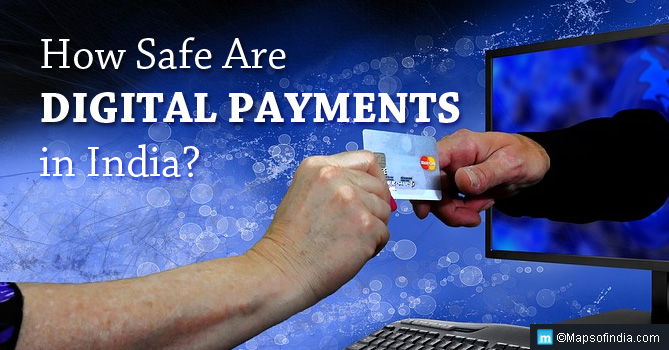Ever since demonetization happened on 8 November 2016 digital payments have increased in India and that has undoubtedly stood the country in great stead. Experts feel that as and when this trend reaches its absolute peak it will lead to a reduction in criminal activities such as tax evasion, bring down the amount of cash used in transactions, and do away with parallel and black economy as well. At present, cash-based operations in India place a burden of INR 21,000 crore on the economy every year. It is also expected that this will help the economy grow. However, it is also being said that increasing digital payments are only going to act as invitations to the cyber criminals of the world.
Susceptible to cyber crime
Will this make India vulnerable to cyber crime? This is one important question that needs to be asked right now. In the last year there has been a gradual increase in digital transactions being done in India. Demonetization wiped out 86% of the banknotes and as such has only hastened the process. The following table provides comparative data of how such payments have increased in recent past:
| Area of expense | Volume in October 2015 (in INR) | Volume in October 2016 (in INR) |
| Transactions based on cheques | 82.97 million | 82.04 million |
| National Electronic Funds Transfer (NEFT) | 114.6 million | 133.21 million |
| Immediate Payment Service (IMPS) | 19.42 million | 42.09 million |
| Point of Sale (PoS) | 169.35 million | 229.31 million |
| Transactions based on prepayment instruments (PPIs) like mobile wallets | 61.82 million | 126.9 million |
| Mobile banking | 13.06 million | 35.99 million |
This means that in the period under consideration the value of online transactions increased by 469.26%, a stupendous figure by any stretch of imagination.
Problems being suffered by corporate bodies
Corporate India has seen an increase in cases of cyber crime. However, as a report states, the incident response mechanism needed to tackle these issues remains unsatisfactory. The Fraud Investigation and Dispute Services report of EY says that 89% of its respondents feel that cyber laws in India need to be bolstered. 55% want these laws to be stronger and 34% people wish for the laws to be clearer. Arpinder Singh, who works as Partner and National Leader of Fraud Investigation and Dispute Services, EY India, says that in the last few years corporate bodies have been exposed to greater risks of cyber crime. Attacks these days are becoming even more complex, globalized, and precise.
Areas of problem
The report has found that there are certain areas of problem such as mobile workforce, the increased sharing of professional and personal information by people on social media, and issues in protecting the information. With the gradual shift to digital economy a number of organizations have also become increasingly vulnerable. This has shed light on the fact that the cyber strategies need to be made stronger, and continually so, in order to make sure that these issues could be handled in a better way. According to Singh, these days it is very important to predict the kind of challenges that might come one’s way so that proper preparation can be taken.





